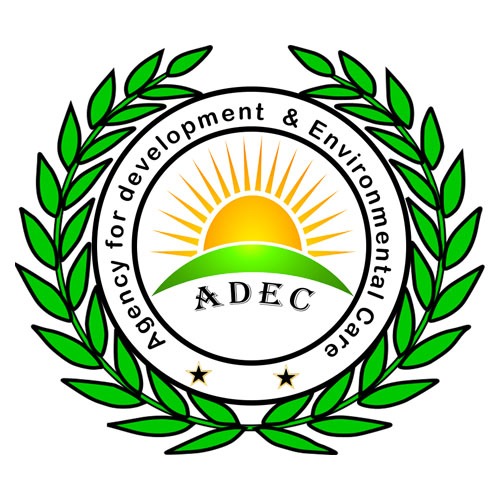
Completed projects
Agency for Development Enveromental Care (ADEC) is a local non-governmental humanitarian organization that works with WFP Puntland-Somalia as a partner. Currently, it is implementing recovery projects in Dhahar district of Sanag region. Furthermore, it has implemented livelihood and drought intervention projects in Dhahar in 2016 and 2017. All the projects implemented or being implemented by SVDEC served a target of 19,446 beneficiaries. The tables below show the type, duration and locations of the projects implemented by SVDEC.
Implemented livelihood projects
| FDP Name |
Activity |
Duration |
No. of HHs |
| Bodacad |
Water catchment |
March-Sep 2016 |
354 |
| Geedcilmi |
Road rehabilitation |
March-Sep 2016 |
253 |
| Dhahar Town |
Water rehabilitation |
April-Oct 2016 |
154 |
| Dhahar Town |
Flood protection barrier |
April-Oct 2016 |
108 |
Drought intervention projects
| FDP Name |
Duration |
No. of HHs |
| Dhahat town |
May-June 2016 |
444 |
| Balibusle |
May-June 2016 |
131 |
| Kaladhac |
May-June 2016 |
81 |
| Baragahaqol |
May-June 2016 |
178 |
| Higlo/Carmo |
May-June 2016 |
49 |
Recovery projects
| FDP Name |
Activity |
Duration |
No. of HHs |
| Dhahar town |
Water catchment/Berkets |
Aug-2016 Jan 2017 |
444 |
| Baragahaqol |
Water catchment/Dam |
Aug- 2016-Jan 2017 |
182 |
| Baragahaqol |
Prosopis clearing |
Aug- 2016-Jan 2017 |
95 |
| Balibusle |
Water catchment |
Aug- 2016-Jan 2017 |
131 |
| Kaladhac |
Water catchment |
Aug- 2016-Jan 2017 |
171 |
| Higlo |
Water catchment |
Aug- 2016-Jan 2017 |
152 |
Relief Intervention Projects
| FDP Name |
Activity |
Duration |
No. of HHs |
| Ceelaayo |
GFD/Drought |
Jan-2017 to Dec-2018 |
102 |
| Afurur |
GFD/Drought |
Jan-2017 to Dec-2018 |
260 |
| Ceelahelay |
GFD/Drought |
Jan-2017 to Dec-2018 |
37 |
| Cawsane |
GFD/Drought |
Jan-2017 to Dec-2018 |
100 |
| Misir |
GFD/Drought |
Jan-2017 to Dec-2018 |
50 |
| Higlo |
GFD/Drought |
Jan-2017 to Dec-2018 |
72 |
| Carmo |
GFD/Drought |
Jan-2017 to Dec-2018 |
74 |
| Kaladhac |
GFD/Drought |
Jan-2017 to Dec-2018 |
81 |
| Boodacad |
GFD/Drought |
Jan-2017 to Dec-2018 |
70 |
| Gacalguule |
GFD/Drought |
Jan-2017 to Dec-2018 |
50 |
| Balibusle |
GFD/Drought |
Jan-2017 to Dec-2018 |
170 |
| Baragahaqol |
GFD/Drought |
Jan-2017 to Dec-2018 |
342 |
| Dhahar |
GFD/Drought |
Jan-2017 to Dec-2018 |
753 |
| Geedcilimi |
GFD/Drought |
Jan-2017 to Dec-2018 |
80 |
Achievements
- Completed 15km feeder at Geedcilmi.
- Completed water catchment at Bodacad.
- Completed water catchment at Dhahar town.
- Completed142m flood protection barrier at Dhahar town.
- Saved the lives of 3,221 beneficiaries through WFP drought intervention project for the last two years
- Improvement of food insecurity situation of drought affected households
- About 80% of planned activities have been achieved the recovery projects.
- Established healthy collaboration and working relationship with the community, local authority, beneficiaries/participants, retailers and Dhahar environmental conservation organization working in the target areas.
- SVDEC planted 80 plants in Baragahaqol and 120 plants in Dhahar town.
- SVDEC implemented the projects without encountering challenges that can hinder projects implementation.
- SVDEC conducted detailed beneficiary sensitization on their entitlement, activities, project duration, Complain Response Mechanisms (CRM) and partners involved.
Impacts of the projects
In the process of implementing the projects, SVDEC has realized the following impacts;
- Improve accessibility to water sources and market especially Geedcilmi community.
- Improved food security at household level.
- The community developed sense of responsibility ownership in maintaining the assets created or rehabilitated.
- Improved nutritional status of the mothers and children in the areas where the intervention reached.
- Paved the way for women participation in project implementation as well as handling the food and leadership role. 63% of the livelihood participants are female.
- Children from poor families got access to school. This is facilitated by availability of food through WFP intervention which reduced HH expenditure on food.
- Improved business transaction and the general economy of the community.
- Households food consumption has greatly improved
- Reduced the crises of the food insecurity
- Save lives of vulnerable individuals, communities and the community at large
- Enabled vulnerable households to meet essential expenses.
- The reduce the employment of the damaging livelihood strategies
- The transfer assistance which was CBT has greatly improved market capacity due to involvement of local retailers.



